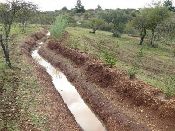|
Monitoring of conservation technologies and approaches
Author: Mohamed Ouessar, Institut des Régions Arides, Tunisia
|
Techniques monitored
The selected monitoring sites represent the main encountered problems in the region namely: water scarcity and rangeland degradation.
- Water harvesting techniques (jessour and tabias) are used for the improvement of water content of soil and thus evapotranspiration of plants and trees.
- Replenishment of groundwater aquifers are ensured through the recharge structures (gabion check dams and recharge wells).
- Rangeland degradation is cured using the rangeland resting techniques.
|
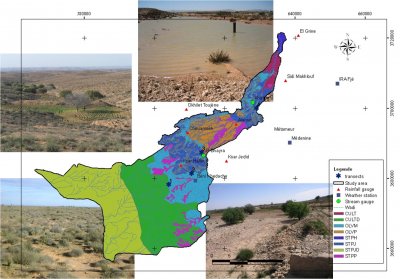 |
|
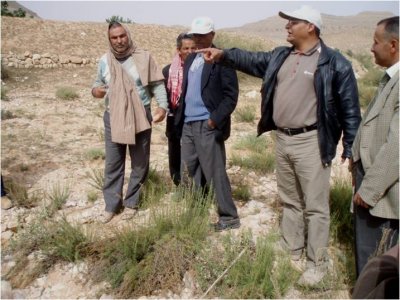
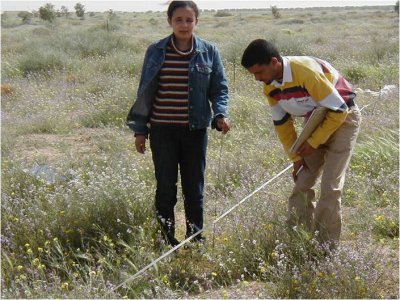
|
Monitoring activities
Meteorology
- Meteo measurements
- Rainfall recording
- Outflow at subwatershed level
- Piezometric levels
Repeated measurements
- Soil moisture gravimetric method,
- Leaf resistance using a porometer
- Plant cover, species diversity/density,biomass, range production.
Agronomical activities by stakeholder
- Dates and type of tillage
- harvest and other inputs
- Animal practices
Yield assessment
- Total yield in kg/ha
- General yield quality or herd/grazing quality assessment
- General impression by stakeholders
|
Preliminary results
- The implementation of the SLM technologies have been conducted by a close collaboration with all stockholders who worked effectively together from the phase of planning, through the field execution and the finial evaluation of the completed works.
- As farmers are already well acquainted with the technologies, the implementation was relatively a smooth exercise.
- If the simplification of the monitored parameters to the farmers is absolutely necessary to gain their implication, the involvement of the developments agents is rather an easier task.
- The last year was exceptionally dry (˜ 100 mm). Therefore no major agricultural activities have been carried out.
|
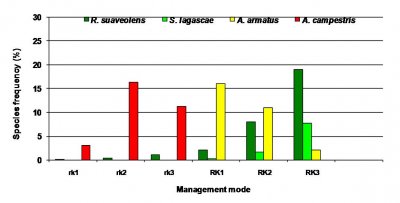 |
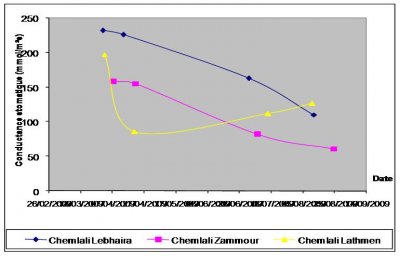 |
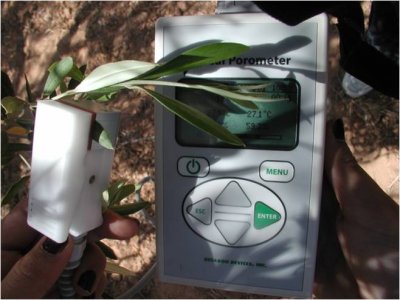 |
Main difficulties encountered
- The highly variable rainfall regime and the slow development of local species, typical of drylands, require more patience from the researchers and the other stakeholders.
- Generally, poor farmers are more interested in immediate returns rather than long term benefits.
- Very few stakeholders do care about global impacts (off site land degradation, climate change, etc) as their concern about household living priorities.
- Parallel large development programs with consistent budgets, undermine the effects of small scale research projects with relatively very limited financial resources.
|
|

